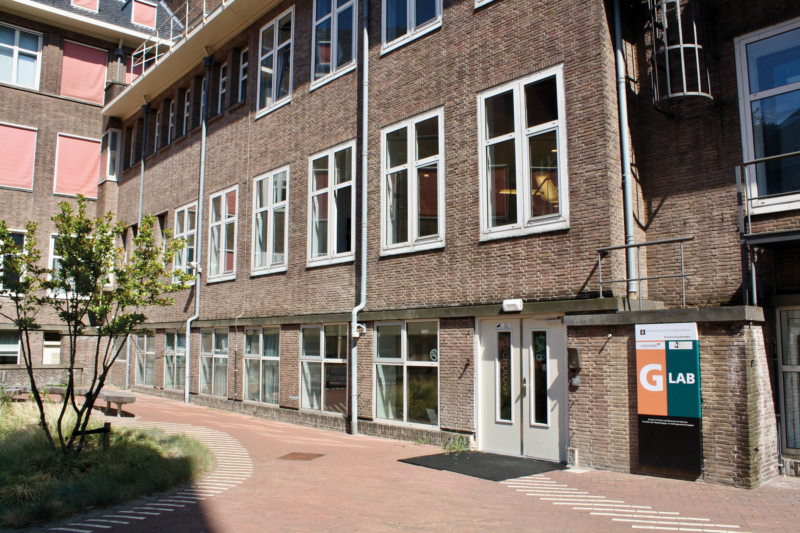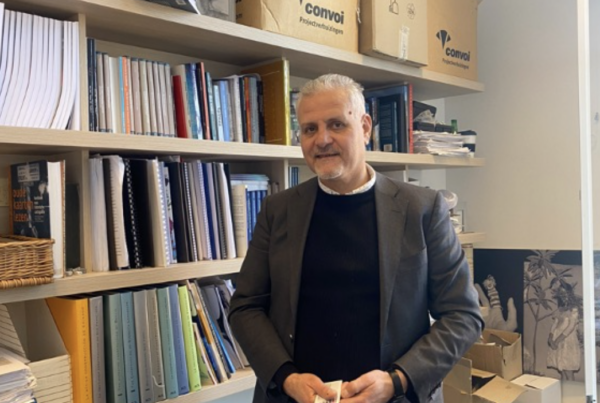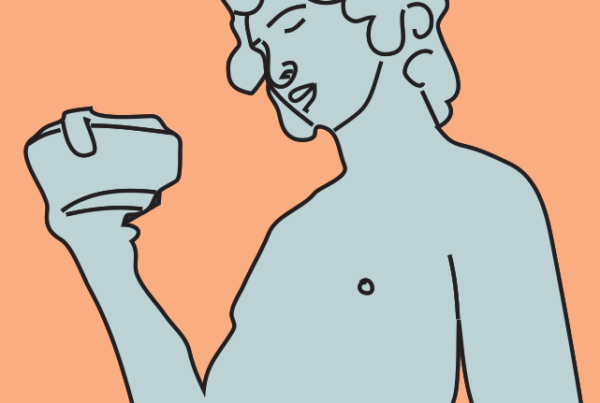

Over the past few years there has been a lot of talk about budget cuts in different faculties and departments at UvA. So far, these budget cuts have not affected the Psychology department in any radical way as the department was able to use the reserves they built up in the years before the financial crisis, with the approval of the FMG. However, 2020 will be the last year the department will be able to use these reserves. This means that measures will have to be taken for the department to modify the financial system to restructure its finances.
Since 2014, the student intake for Psychology at UvA has decreased by almost a quarter and consequently, the income, that largely depends on diploma financing, has decreased by up to a quarter too. In addition to that, psychology has lost its partial beta status due to a new allocation model the UvA introduced in the beginning of 2019. The allocation model is used to divide money between the faculties. This means another decrease in income, as the department no longer receives compensation for expensive clinical education or the lab facilities. These decreases were not taken into account when the Psychology Board increased the number of expenditures, both temporary and structural, after achieving some financial surpluses in the years 2012 to 2016.
A few measures have already been taken since the end of 2017 to restructure the finances, such as reducing the workforce through natural attrition, and organizing the programs and courses more efficiently, without reducing the quality of education. After the introduction of the new allocation model, it became clear that these measures alone would not be sufficient. Therefore, the department has been putting a lot of effort into looking for ways to make the department’s finances more robust. Not just in the short term, but also in the longer term.
Starting in the beginning of 2020, changes will be implemented on all levels of the organization. There will be changes for the staff of the department, such as the adjustment of the education-research ratio from 50% teaching and 50% research, to a ratio of 55/45, introducing a standard policy regarding redemption of education (this has to do with how the research is funded and budgeted), a maximum number of guest appointments and making the supporting processes more efficient. There will also be changes in the research program of the department, the most important one being the reduction and optimization of the use of space in building L.
For the students, the most radical changes will be for the Bachelor program. There are two important reasons for this. Earlier it was mentioned that the UvA changed their allocation model and that this resulted in a decrease in income for the Psychology department. This decrease in budget was bigger for the Bachelor, 12,5%, compared to the reduction of 6% for the Masters. Another reason that the department decided to reform the Bachelor in particular, is that over the past few years, the Masters have already undergone a big reform to make them more efficient. The department will continue looking for ways to modernize and optimize the masters more, but there is no need for any rigorous changes right now, unlike the Bachelor’s program.
The first year of the Bachelor program will more or less stay the same. There will be a bigger focus on psychodiagnostics during the first year, integrated with the existing courses Clinical, Biological and Developmental psychology. The separate Psychological Assessment course in the second year will disappear. The main focus of the first year will still be on the orientation on all the available specializations. There used to be a separate course to orientate students on the possible career paths within psychology, Professional Orientation, but this will be integrated into the separate courses in the first year. There will also be a new course on research that is being done under the Methodology program, as this was never covered previously. As such, a lot of students are not aware of the contents of the Methodology specialization.
The second and third year will undergo more changes. The Shared Program, which is now in the first and second year of the Bachelor, will in the future be in the first year and the first semester of the second year. Students will start their specialization in the second semester of the second year. In that semester, students will follow the ‘core program’ of their specialization. In the first semester of the third year, students will write their Bachelor thesis. After that, there will be a mobility window in the second semester of year 3, in which students have the opportunity to follow a second specialization or a minor elsewhere. There used to be several smaller mobility windows in which students could follow “free elective” courses, some in the second year and, depending on specialization, some in the third year. In the new Bachelor program this will all be migrated to the second semester of the third year, giving every student across every specialization the same mobility window.
This new Bachelor program will be implemented in 2020-2021. Because there aren’t any radical changes in the first year, the current first years will do the rest of the Bachelor program as described in the last paragraph. For the current second year students, it will be a bit different: they will write their Bachelor thesis in the first semester of the third year and take a few elective courses called ‘Current Topics’ to prepare students for the writing of their thesis, and do the ‘core program’ of their specialization in the second semester of the third year.
The department has worked hard to reorganize the Bachelor program, so that it’s more efficient without losing its essence. The most important aspects of the Psychology Bachelor program at the UvA, such as the many specializations and the focus on scientific reasoning and scientific writing, will be preserved in the new Bachelor program. The biggest loss that comes with the implementation of the new (Bachelor) program, is that there won’t be any ‘free electives’ during the Shared Program. However, students will have the opportunity to do an entire second specialization or even a minor elsewhere in the second semester of their third year, without falling behind or having to do an extra year. There is still a lot of work that needs to be done to redesign the specific courses, while ensuring they fit in the new program and cover their learning goals.
As we learn in Psychology, change may feel uncomfortable, but it is not to be feared. These changes were made with the aim of upholding the quality of education in our department while working within the limitations posed by our current budget. These limitations did force the department to take a critical look at the current programs and modernize them according to the current needs of the department and its staff and students. Perhaps these changes may even be for the better. If needed, adjustments may be made along the way to support these preliminary changes. For now, these adjustments sound like an improvement, but only the future will tell if they really are in practice.

Over the past few years there has been a lot of talk about budget cuts in different faculties and departments at UvA. So far, these budget cuts have not affected the Psychology department in any radical way as the department was able to use the reserves they built up in the years before the financial crisis, with the approval of the FMG. However, 2020 will be the last year the department will be able to use these reserves. This means that measures will have to be taken for the department to modify the financial system to restructure its finances.
Since 2014, the student intake for Psychology at UvA has decreased by almost a quarter and consequently, the income, that largely depends on diploma financing, has decreased by up to a quarter too. In addition to that, psychology has lost its partial beta status due to a new allocation model the UvA introduced in the beginning of 2019. The allocation model is used to divide money between the faculties. This means another decrease in income, as the department no longer receives compensation for expensive clinical education or the lab facilities. These decreases were not taken into account when the Psychology Board increased the number of expenditures, both temporary and structural, after achieving some financial surpluses in the years 2012 to 2016.
A few measures have already been taken since the end of 2017 to restructure the finances, such as reducing the workforce through natural attrition, and organizing the programs and courses more efficiently, without reducing the quality of education. After the introduction of the new allocation model, it became clear that these measures alone would not be sufficient. Therefore, the department has been putting a lot of effort into looking for ways to make the department’s finances more robust. Not just in the short term, but also in the longer term.
Starting in the beginning of 2020, changes will be implemented on all levels of the organization. There will be changes for the staff of the department, such as the adjustment of the education-research ratio from 50% teaching and 50% research, to a ratio of 55/45, introducing a standard policy regarding redemption of education (this has to do with how the research is funded and budgeted), a maximum number of guest appointments and making the supporting processes more efficient. There will also be changes in the research program of the department, the most important one being the reduction and optimization of the use of space in building L.
For the students, the most radical changes will be for the Bachelor program. There are two important reasons for this. Earlier it was mentioned that the UvA changed their allocation model and that this resulted in a decrease in income for the Psychology department. This decrease in budget was bigger for the Bachelor, 12,5%, compared to the reduction of 6% for the Masters. Another reason that the department decided to reform the Bachelor in particular, is that over the past few years, the Masters have already undergone a big reform to make them more efficient. The department will continue looking for ways to modernize and optimize the masters more, but there is no need for any rigorous changes right now, unlike the Bachelor’s program.
The first year of the Bachelor program will more or less stay the same. There will be a bigger focus on psychodiagnostics during the first year, integrated with the existing courses Clinical, Biological and Developmental psychology. The separate Psychological Assessment course in the second year will disappear. The main focus of the first year will still be on the orientation on all the available specializations. There used to be a separate course to orientate students on the possible career paths within psychology, Professional Orientation, but this will be integrated into the separate courses in the first year. There will also be a new course on research that is being done under the Methodology program, as this was never covered previously. As such, a lot of students are not aware of the contents of the Methodology specialization.
The second and third year will undergo more changes. The Shared Program, which is now in the first and second year of the Bachelor, will in the future be in the first year and the first semester of the second year. Students will start their specialization in the second semester of the second year. In that semester, students will follow the ‘core program’ of their specialization. In the first semester of the third year, students will write their Bachelor thesis. After that, there will be a mobility window in the second semester of year 3, in which students have the opportunity to follow a second specialization or a minor elsewhere. There used to be several smaller mobility windows in which students could follow “free elective” courses, some in the second year and, depending on specialization, some in the third year. In the new Bachelor program this will all be migrated to the second semester of the third year, giving every student across every specialization the same mobility window.
This new Bachelor program will be implemented in 2020-2021. Because there aren’t any radical changes in the first year, the current first years will do the rest of the Bachelor program as described in the last paragraph. For the current second year students, it will be a bit different: they will write their Bachelor thesis in the first semester of the third year and take a few elective courses called ‘Current Topics’ to prepare students for the writing of their thesis, and do the ‘core program’ of their specialization in the second semester of the third year.
The department has worked hard to reorganize the Bachelor program, so that it’s more efficient without losing its essence. The most important aspects of the Psychology Bachelor program at the UvA, such as the many specializations and the focus on scientific reasoning and scientific writing, will be preserved in the new Bachelor program. The biggest loss that comes with the implementation of the new (Bachelor) program, is that there won’t be any ‘free electives’ during the Shared Program. However, students will have the opportunity to do an entire second specialization or even a minor elsewhere in the second semester of their third year, without falling behind or having to do an extra year. There is still a lot of work that needs to be done to redesign the specific courses, while ensuring they fit in the new program and cover their learning goals.
As we learn in Psychology, change may feel uncomfortable, but it is not to be feared. These changes were made with the aim of upholding the quality of education in our department while working within the limitations posed by our current budget. These limitations did force the department to take a critical look at the current programs and modernize them according to the current needs of the department and its staff and students. Perhaps these changes may even be for the better. If needed, adjustments may be made along the way to support these preliminary changes. For now, these adjustments sound like an improvement, but only the future will tell if they really are in practice.



